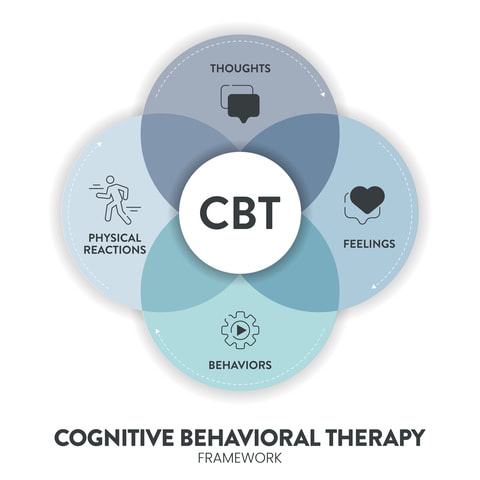|
Do you often turn to food when you feel overwhelmed, or your emotions run high? You are not alone. Turning to food for comfort during difficult times is a common way of dealing with stress. Our bodies naturally seek nutrition, and a snack can stimulate the brain's reward system, temporarily boosting mood. Although it is usual to resort to emotional eating occasionally, it is essential to develop other strategies to cope with stress if this type of behavior becomes frequent.
To effectively assist those struggling with eating disorders, it is critical to have a comprehensive understanding of these complex mental health conditions and their associated effects. By gaining this knowledge, we can provide the proper care and support required to positively impact the lives of those affected. Let's take a look into the complexities of eating disorders to provide the necessary care and assistance to those in need. Emotional Eating and Its Triggers
Eating disorders manifest through abnormal eating behaviors and distorted perceptions of food, weight, and body image. Such disorders include a range of conditions with varying symptoms and impact on mental and physical health.
1. Anorexia Nervosa - severe food restriction, leading to substantial weight loss and a skewed view of one's body shape. People with anorexia may have compulsive thoughts about food, be terrified of becoming overweight, and strive relentlessly to be thin. 2. Bulimia Nervosa - recurrent binge-eating episodes followed by compensatory behaviors like vomiting or excessive exercise. Those with bulimia often feel a loss of control during binges and may be preoccupied with body shape and weight. 3. Binge Eating Disorder - uncontrollable overeating episodes, often accompanied by guilt and distress. Unlike bulimia, individuals with this disorder do not engage in compensatory behaviors, potentially leading to significant weight gain and associated health issues. It is important to be aware of these disorders and seek professional help from Mental Health Facilities in Orlando for the affected individual to ensure comprehensive care and recovery. An Overview of Cognitive Behavioral Therapy (CBT)
CBT Therapy in Orlando is a proven psychological treatment backed by evidence and has proven effective in addressing a spectrum of mental health challenges, including eating disorders.
Cognitive Behavioral Therapy (CBT) is a therapeutic approach that focuses on the dynamic relationship between cognitions (thoughts and beliefs), emotions, and behaviors. This approach recognizes how individuals think and believe can profoundly influence their emotional states and behaviors. The process of CBT involves:
CBT is a structured and goal-oriented form of psychotherapy that encourages a collaborative relationship between therapist and client. It is a practical approach to problem-solving that focuses on the present and works to identify and modify dysfunctional thought and behavior patterns. Improving Mental Well-being through CBT
Cognitive Behavioral Therapy (CBT) is a proven and practical approach that engages you in purposeful conversations with a qualified mental health expert. Your therapist will skillfully guide you through a structured process, facilitating incremental progress toward your goals. The objective is to establish a nurturing, non-judgmental, and safe environment for candid discussions about your concerns while helping you uncover patterns of unhelpful thoughts and behaviors that can be restructured over time.
Addressing Underlying Emotional Issues CBT, a practical approach to addressing emotional issues, is a critical component of successful weight loss programs. By exploring the connection between thoughts, emotions, and behaviors, CBT for weight loss in Florida helps individuals identify and challenge negative or distorted thought patterns that contribute to emotional distress. Through guided discussions with a qualified therapist, people can explore and reframe these thoughts, paving the way for improved emotional contentment and successful weight management.
Building Resilience and Stress Management Techniques
CBT equips individuals with valuable skills to build resilience and manage stress effectively. Therapists work collaboratively with clients through goal-oriented and time-limited sessions to develop practical coping strategies. These strategies include identifying stress triggers, altering negative thought patterns, and implementing healthy behavioral responses. By mastering these techniques, individuals can enhance their resilience and better navigate stressors. Enhancing Self-esteem and Self-efficacy A key focus of CBT is enhancing self-esteem and self-efficacy, empowering individuals to cultivate a positive self-image and belief in their abilities. Therapists assist clients in recognizing and challenging self-defeating thoughts, fostering a more realistic and affirming self-perception. Through this process, individuals can build confidence, improve their self-worth, and develop a greater belief in their capacity to achieve their goals. Prioritize Your Mental Health with Providers for Healthy Living
At Providers for Healthy Living, we operate a psychotherapy practice that offers in-person and tele-behavioral health services, focusing exclusively on CBT Therapy in Orlando. Our commitment is to provide a personalized approach, guiding individuals through understanding and transforming problematic thought patterns, effectively managing challenging emotions, and identifying and modifying ineffective behavioral routines.
Our team comprises compassionate, highly skilled, and non-judgmental professionals who specialize in evidence-based treatments for various mental health concerns such as anxiety, depression, OCD, panic, social anxiety, and phobias. Our dedication extends beyond financial considerations; we are passionate about helping our clients and their families achieve happiness and vitality.
At our clinic, we foster unity and equality, creating a harmonious and joyful environment. We invite you to discover the power of Cognitive Behavioral Therapy (CBT) and take the steps necessary to create a brighter, healthier future. We are here to support you in achieving a healthier and happier future by exploring the advantages of CBT with us. Connect with Providers for Healthy Living today to take the first step towards positive change.
FAQs
What Is Emotional Eating, and How Does It Impact Mental Well-being?
Emotional eating is when individuals turn to food in response to emotional triggers, such as stress or sadness. It can significantly impact mental well-being by creating a cycle of temporary relief followed by feelings of guilt or discomfort.
What Role Do Healthy Diet and Exercise Play in Mental Well-being?
Maintaining a healthy diet and regular exercise are integral to mental wellness. A balanced lifestyle contributes to physical health, positively influencing mood and cognitive function.
How Do We Address Emotional Issues That Contribute to Emotional Eating?
Addressing emotional issues linked to emotional eating involves therapeutic approaches like Cognitive Behavioral Therapy (CBT). CBT helps individuals recognize and modify thought patterns contributing to emotional distress.
What Is the Main Reason Behind Emotional Eating?
The main reason behind emotional eating often stems from a desire for comfort or a coping mechanism for emotional distress. Understanding these triggers is crucial in breaking the cycle.
How Can Individuals Build a Sustainable Plan To Maintain Emotional Eating?
Building a sustainable plan to manage emotional eating involves creating awareness of triggers, developing healthier coping mechanisms, and seeking support from mental health professionals if needed.
0 Comments
Your comment will be posted after it is approved.
Leave a Reply. |
LOCATED AT 341 N MAITLAND AVE, STE 340, Maitland, fl 32751 |
Telephone and fax -
|
OUR SERVICES | OUR TEAM | OUR BLOG | CONTACT US | SITEMAP
|



